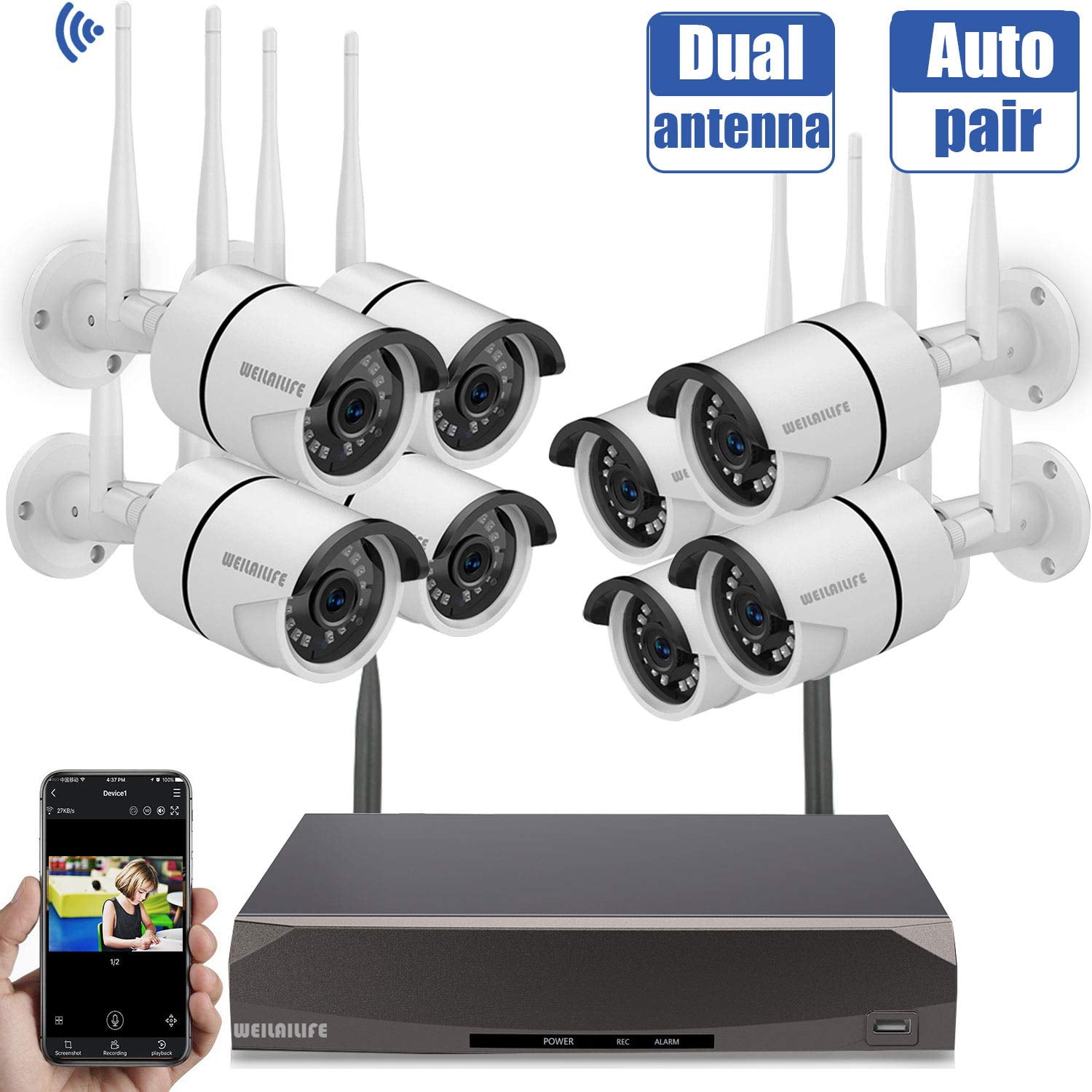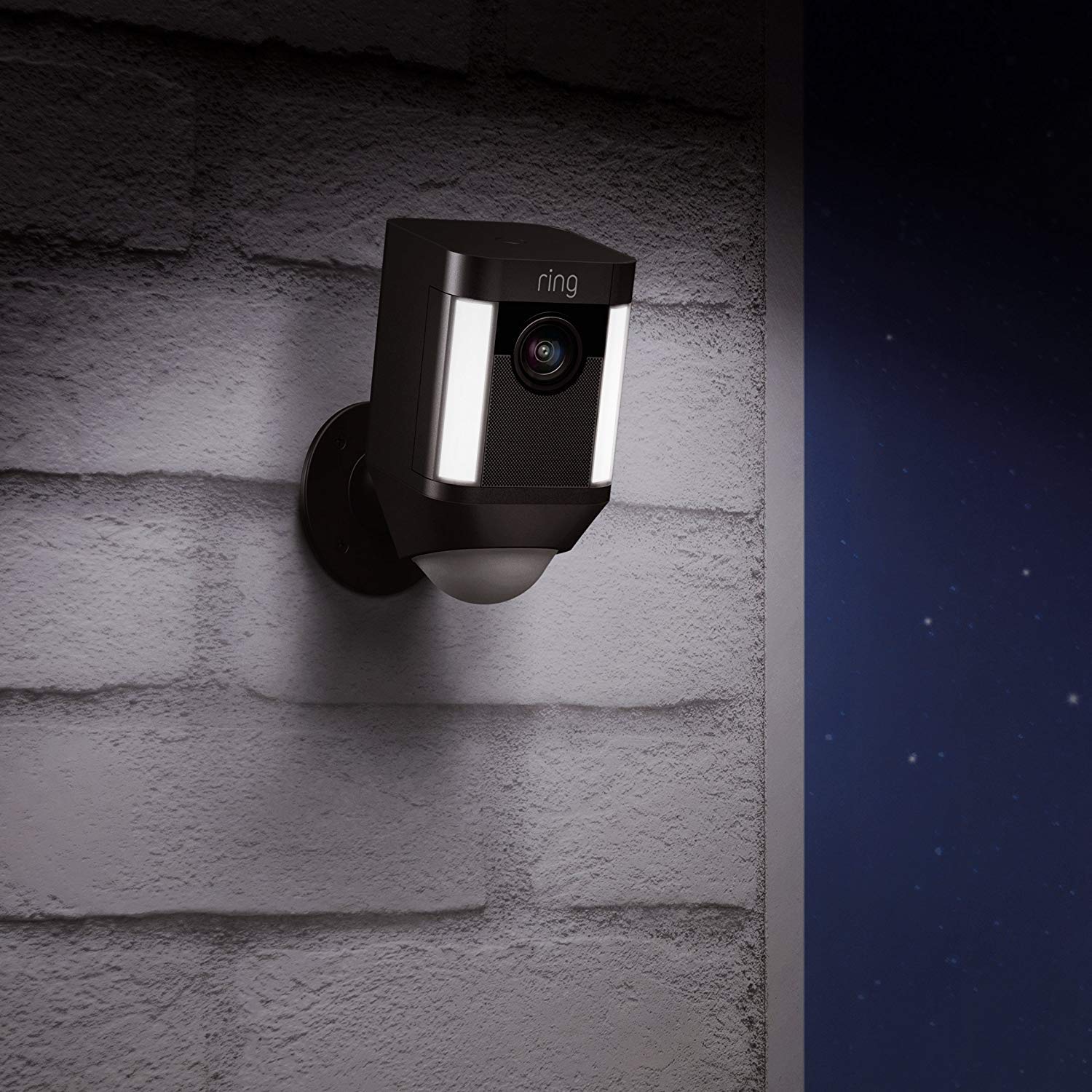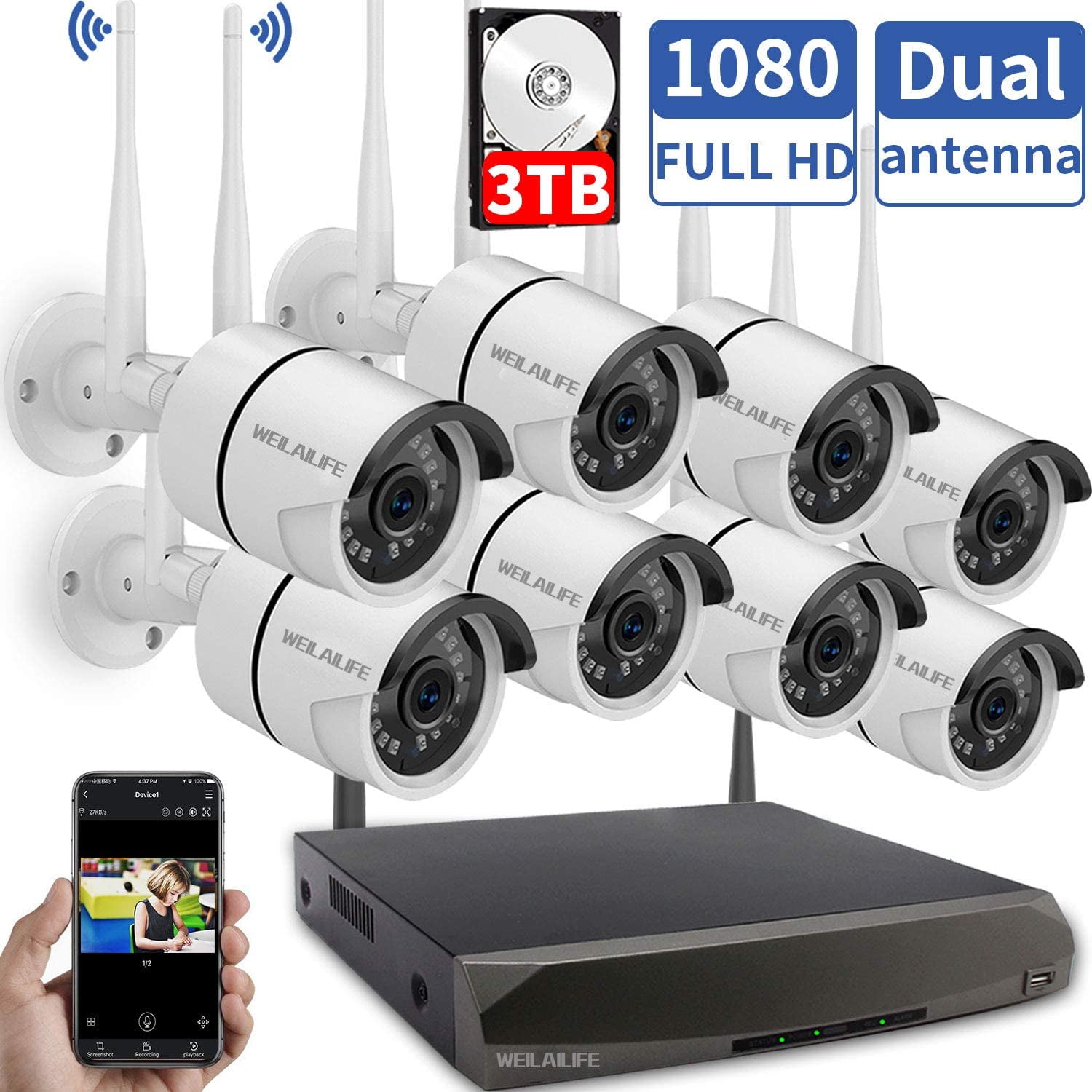
One of our most frequent list contenders comes from the Arlo brand.

Overall, we recommend choosing a wired system over a wireless system due to its reliability and the fact that it isn’t dependent on having a strong Wifi signal. A wireless system would be great for a small home or office set up looking for basic coverage.

If you are looking for a faster solution that can be more adjustable and small lapses in coverage won’t impact your security needs, a wireless system could be perfect for you. A wired system would be ideal for a larger property or for a business looking for enhanced security options. If you are looking into something reliable with a level of permanence, a wired system can be a great option. When looking at which type of system is best, it really depends on your needs and long term goals. However, the risk of being hacked is much greater with a wireless system than with a wired system. There are ways to prevent this, like updating passwords and adding more authentication measures. This will be impacted by where your router is in your home, and how far you’re placing cameras from it.īeing connected to Wi-Fi and having your footage uploaded to the cloud also makes you more susceptible to hacking. Your image quality may vary greatly and even if you’re using a higher resolution camera, if your signal goes down, you might end up with periods of much lower resolution. The same goes for your signal being slow or spotty, it could affect your image and audio quality. Since you’re relying on Internet connection for your cameras, if there are breaks in coverage or the signal goes down, you’re going to lose coverage. There are a lot of positives for a wireless setup, but there can be some downsides. Most wireless security systems tend to be more user friendly, and will have advanced mobile apps to control your device. Typically, all your footage will be stored in the cloud and you’ll be able to access it at any time. With a wireless option, it will also be easy to connect your cameras to Wi-Fi and get everything setup through an app on your phone.

With a wired system, if you’re moving, you may be able to take the cameras with you but you’ll have to re-run cables at your new location. You’ll also be able to adjust your equipment fairly easily, and you’ll be able to take it with you if you relocate.
#Best wireless outdoor security camera plus
Obviously, the setup is going to be a big plus here. This won’t be nearly as in depth as having a fully-wired system, but it is something to note if you’re thinking you can just throw wireless cameras everywhere and be set. So even with a wireless system, your camera will need to be plugged into an outlet. The “wireless” part of the setup is referring to cameras communicating over Wi-Fi. Meaning, your camera is still going to need to be connected to a power source, unless it is completely wirefree and battery powered. Now, what are the benefits of a wireless system? First off, what are we talking about when we say wireless? When we’re talking about a wireless setup, wireless is only referring to the way the camera is connected to the network. Benefits and Drawbacks of a Wireless System If you are looking for a long-term security solution, a wired system would be a great option. A wired system also won’t be susceptible to any type of wireless hacking. You’ll have a strong, constant connection that will give you clear audio and video. With a wired system, there isn’t an issue of the cameras going down or being interrupted by a spotty signal. One of the biggest advantages to a wired system is reliability. And, after you get it installed, that won’t be a hassle ever again! This sounds daunting, but a wired system still has many benefits that could outweigh the installation process. This can be done professionally, or on your own, but it requires running several cables throughout the walls and ceilings of your home so you don’t end up with exposed wiring everywhere. Installing a wired system is going to be more time consuming and will require wiring throughout the property wherever you’re wanting to place a camera. wireless is what turns some people away from a wired system. The difference in the installation process for wired vs. The biggest factor you’re going to have to consider initially is installation.

We’ll dive into more of the benefits and downsides throughout the rest of this post! The Benefits and Drawbacks of Hard-Wired Systems That being said, whichever camera you choose is going to depend on your personal security needs. While wireless cameras do have their benefits, including ease of installation and flexibility, we recommend wired security camera systems for most cases due to their reliability and security. If you’re trying to decide between a wired or wireless security system, there are several factors to consider.


 0 kommentar(er)
0 kommentar(er)
